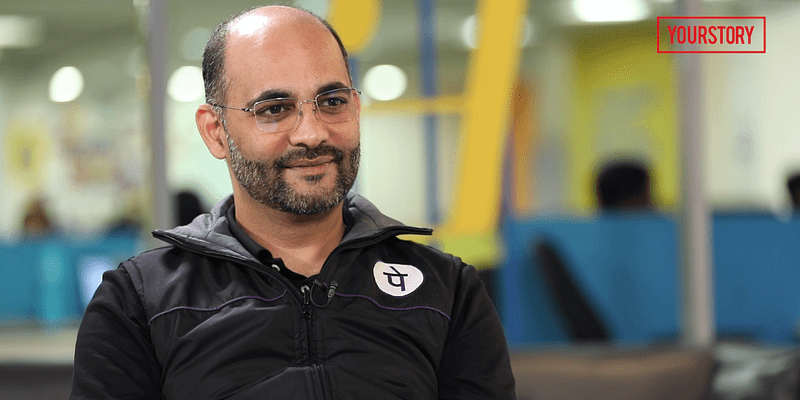PhonePe's Sameer Nigam says Bengaluru is great for "core tech" but Mumbai is more diverse
At the Mumbai Tech Week 2024, PhonePe Founder Sameer Nigam spoke of Bengaluru's structural advantages in tech building, and also teased the upcoming launch of the Indus App Store—India's first homegrown horizontal app store.
PhonePe’s reverse flip to India in October 2022 was a landmark one, both in terms of the billion-dollar tax bill it footed as well as the mini-trend—of startups moving their domiciles back to India—it triggered.
Ask Founder Sameer Nigam about why he chose Bengaluru when Mumbai remains India's uncontested financial hub, he's quick to highlight the former's “structural advantages”. “It's a much cheaper place that attracts talent that is able to find much cheaper housing. And when you're a 20-something economic migrant working in startups, you want reasonable housing," Nigam shared in a fireside chat with YourStory Founder and CEO Shradha Sharma at the Mumbai Tech Week 2024.
"There's also cheap beer; Bengaluru is a great microbrewery city,” he quipped.
Nigam, whose entrepreneurial career started in India's commercial capital with Mime360, which Flipkart later acquired in 2011, also underscored that “Mumbai is culturally richer than Bengaluru, and there are a lot more experiences to be had here”.
“I meet more fun people across a wider spectrum: from the arts and sciences and the financial world and sports here. Bengaluru is fantastic if you want to be in core, core tech,” he explained.

Mumbai Tech Week
Going beyond fintech
PhonePe, currently India's most valuable startup at over $12 billion, is no longer just a fintech company. It has successfully entered hyperlocal commerce with Pincode, and is just two days away from launching the Indus Appstore (Indus OS). Nigam calls it “India's first branded horizontal app store” that will offer users an alternative to the current $50-billion duopoly of Google Play Store and Apple App Store.
“Free choice can change the market,” he said, adding that PhonePe is in talks with OEMs (smartphone makers) to structure partnerships in a way that Indus OS becomes a “system app” and not an "unverified source" of apps. “You can list finally, and that's a pleasant start,” Nigam assured Dream 11 Co-founder and CEO Harsh Jain, who was seated in the audience. (Jain is one of the founding members of the Tech Entrepreneurs Association of Mumbai, which organises the Mumbai Tech Week.)
Both Google and Apple continue to bar real-money gaming apps (including fantasy sports platforms like Dream 11) from being listed on their app stores. These have to be installed via APK versions by users. Without revealing much about the distribution architecture of Indus OS, Nigam argued that "competition breeds innovation" and Indus Appstore is a step in that direction.
Fintech and regulation
The entrepreneur also shed light on the ongoing regulatory tangle ensnaring its listed peer .
"Inherently, the 'Founder DNA' is to break rules and define the new normal. But for us, trust and regulation were right up there when we started PhonePe. We never believed in the idea of disruption for the sake of disruption," Nigam said.
While many have termed RBI's regulatory action against Paytm "disproportionate", Nigam stated, "On the innovation side, RBI lets us lead. On the regulatory side, they have more data than us [fintechs]. Basis on what they said, there was enough time for the company to have responded or complied."
PhonePe, of course, leads the UPI game with over a 50% market share. If the regulatory quagmire continues, it believes that it could gain a part of its rival's customers. "All I'll say is some will come," Nigam added.
Edited by Kanishk Singh







